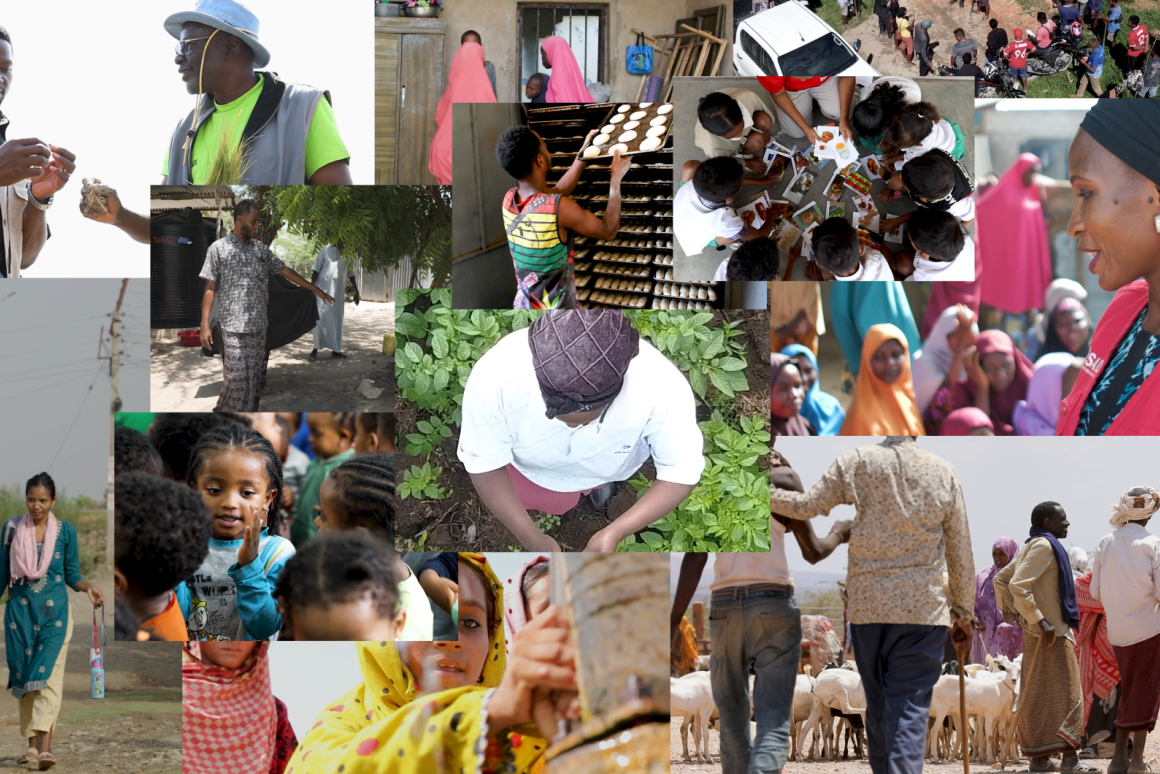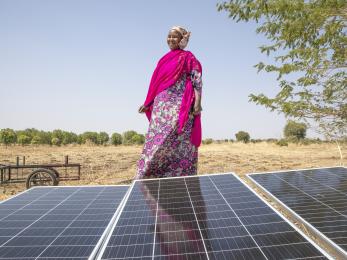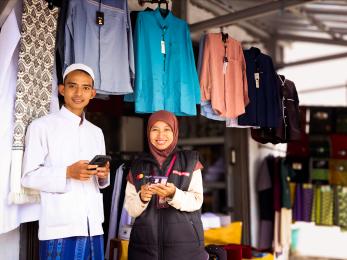Supporting communities after disaster in Indonesia
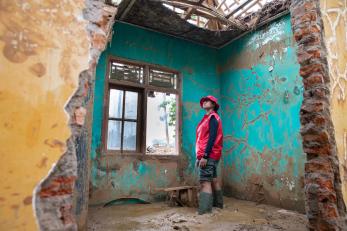
Indonesia is the world’s largest island country, lying along the Ring of Fire - a belt of active volcanoes and earthquake epicentres bordering the Pacific Ocean basin. It regularly faces the hardship of many natural disasters, including earthquakes, tsunamis, and volcanic eruptions.
When a disaster strikes, people’s lives can be completely upended. Their home and their belongings might be destroyed or lost. In the immediate aftermath, they will struggle to meet their basic needs such as shelter and water. Without clean water, people are unable to drink, cook or clean safely. They might resort to unsafe water sources such as rivers and damaged wells, increasing their risk to illness and infectious disease.
Wani’s home destroyed twice
In September 2018, when a 7.5-magnitude earthquake struck the island of Sulawesi, triggering a 10-foot tsunami on the coast, it damaged or destroyed many of the homes in Wani’s village, situated at the base of a mountain. Wani’s was one of the houses toppled, so she and her husband rebuilt a temporary shelter in the same place — but it was swept away by a landslide.
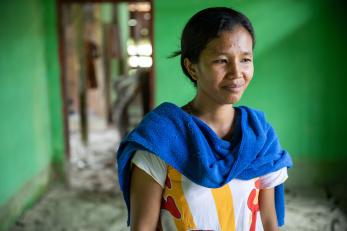
Wani’s village is now abandoned, concealed almost entirely by earth except for peaked roof top after peaked roof top protruding from the mud. All that remains of Wani’s home is a small pile of nails and wood beams overgrown with grass and weeds.
Mercy Corps distributed emergency supplies in the immediate aftermath of the disaster, and has since built water points in the community to provide clean water for drinking, cleaning and cooking.
Before a water point was installed near her shelter, Wani would trek up the nearby mountain multiple times a day to collect water from a reservoir. It was a physically grueling and time-consuming process, the water wasn’t very clean, and she couldn’t often collect enough for all her family’s daily needs. With clean water now accessible near her home, Wani has one less struggle to overcome in her family’s survival and recovery.
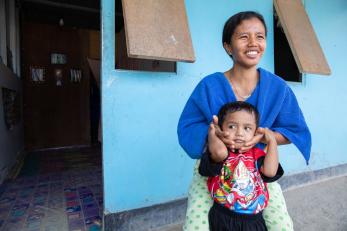
Khodijah rebuilds her life
Khodijah lives in the Lebak district in the west of Java, one of Indonesia’s biggest islands, and where the country’s capital, Jakarta, is situated. In January 2020, after three times the average amount of rainfall, flash floods swept through communities in the west of Java, including Lebak where Khodijah lives.
Khodijah lost everything – her home and all her belongings.
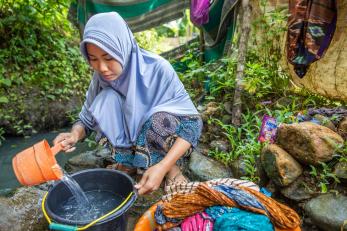
The roof of her house collapsed over the well she had in her home, which used to provide her reliable and clean water. Like others in her community, she took shelter on higher ground, living in a tent with her husband and 2-year-old son. Her village is now abandoned, with many of the wells that people relied on also destroyed.
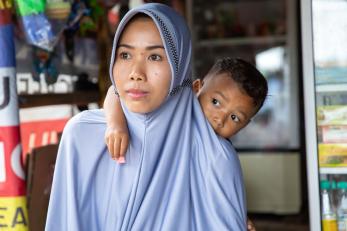
After the floods, there were not enough functioning wells left to serve the entire community, meaning that Khodijah had to travel far in order to reach water.
She explains the backbreaking work of finding water, travelling to multiple unreliable sources including a drilled well, one ground well at a nearby rice field and, as a last resort, the river – four times a day, every day, in the sweltering heat. Khodijah recently suffered a miscarriage, a loss she considers a result of the physical toll of trudging long distances in search of water every day. She never likes spending too long at the river, fearful it will overflow and flood her community all over again.
“We always try to get enough water, even though it sometimes means we have to go down to the river and fight our trauma and fear.”
Mercy Corps supported Khodijah’s community by building a water point which provides enough clean water for the entire village’s cooking, cleaning and drinking needs. In addition to meeting her family’s water needs, Khodijah has sought ways to financially support her husband and son. With the immediate cash support she received after the floods took her home, she started a small shop at the front of her temporary shelter, selling an array of items including dry snacks, drinks, medicine and plastic toys.
Supporting communities after disaster
For Khodijah and Wani, when their communities were affected by natural disaster, their days were spent in an endless search to find enough water for themselves and their family.
Water points mean that there is enough clean water available for the whole community. People no longer need to walk long distances many times a day in order to find water, nor do they need to put themselves at risk when using contaminated or dirty water sources.
People can instead focus their time and effort on getting their lives back to normal – looking towards the future and rebuilding their lives.
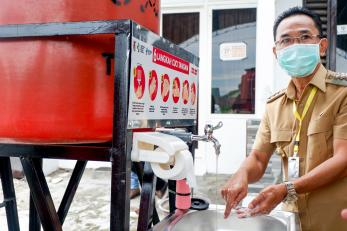
Water point quick facts
-
A water point usually contains a tank with a 1,000 litre capacity.
- On average, a person needs 15 litres of water per day, meaning that one water point can serve roughly 66 people a day, or even more if the tank is topped up more than once in a day through water trucking.
- We aim for one water point for a neighbourhood of 30-50 households, though this can differ depending on the community need after a disaster.
- Sand filtration is used to purify the water in the tank and make it safe for consumption. Cement at the bottom of the water point ensures that the area doesn’t become muddy.
- Rainwater harvesting is included within the waterpoint as an alternative source of water collection.
Before you go
With a gift today, your support could help people access the clean water they urgently need after a disaster hits. Around the world people need clean water to meet their basic needs, but it also enables them to restart and rebuild their lives.
